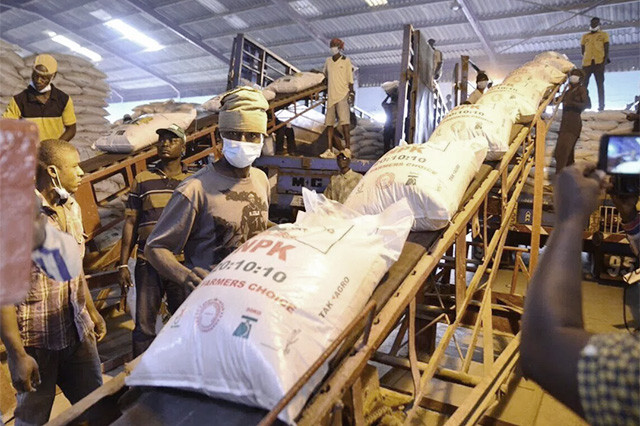The Federal Government has begun the implementation strategy to ensure that non-oil products are duly accepted in the US under the African Growth and Opportunity Act.
The products that are being considered for export under AGOA include sesame seed, cashew, tomatoes, oranges, cassava, spices and ginger.
Others are shea butter, cow pea, banana, plantain, cement, clinker, leather and articles of leather, arts and handicrafts, specialty foods and cocoa.
Alhaji Aliyu Abubakar, the Deputy Director, Trade Department, Ministry of Industry, Trade and Investment, made this known at a stakeholders’ meeting in Abuja on Friday.
Abubakar said that the Minister, Okechukwu Enelamah, had given a directive to have the document as a fallout from the AGOA forum that took place in the US in July.
On May 18, 2000, the US Congress passed AGOA into law.
AGOA is a trade programme meant to establish stronger commercial ties between the US and sub-Saharan Africa.
The act establishes a preferential trade agreement between the US and selected countries in the sub-Saharan region.
Initially approved for 15 years, AGOA was reauthorised for 10 years on June 25, 2015 by the Obama administration.
In its current form, AGOA will last until September 30, 2025.
Abubakar explained that for Nigeria’s non oil products to be accepted, the standards must meet the requirements of the US.
He said it was important to have relevant stakeholders in the industry meet and discuss the outcome of 2018 AGOA forum in the US and get their inputs on the implementation plan.
According to him, the minister is expecting the action plan as quickly as possible with a view to making a remarkable progress in exporting non-oil products to the US.
The deputy director disclosed that governments were tasked during the forum in the US to assist AGOA eligible countries in putting in place an effective and efficient mechanism for capacity building at the national and regional levels to maximise its utilisation.
He said the governments were also enjoined to open discussion on non tariff barriers affecting AGOA exports such as the lengthy registration process for consignment.
Abubakar stated that the forum also charged governments to put in place the relevant incentives/measures to attract and increase US private investments in Africa with a view to accelerating the industrialisation and diversification of African economies and exports.
SOURCE:
- Get link
- X
- Other Apps

Comments
Post a Comment